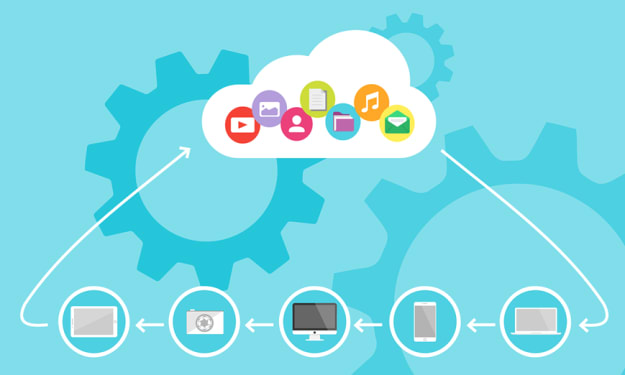Flutter App Development - Why You Should Choose Flutter
Why You Should Choose Flutter

Today mobile app developers have a plethora of options to choose from while developing a new app. In the recent past, there has been an emergence of cross-platform app development tools that let developers create apps with high code reuse and lesser time spent on coding. This blog talks about one of these emerging tools: Flutter. Flutter is an open source framework for creating high-performance, cross-platform mobile apps. It comes with its own rendering engine and a standard library that covers all the basic needs for creating an app. If you’re looking to develop a new app or update your existing one then read on to know why Flutter is the right choice for your business.
What is Flutter?
Flutter is an open source SDK (Software Development Kit) based on the concept of reactive programming. It is used to develop cross-platform apps for both Android App Development and iOS with a single code base. With the help of its stateful and rich widget library, one can create a beautiful and user-friendly app with rich and interactive UI. You can use the Flutter framework to build both the Android and iOS apps from a single code base. In a word, Flutter is the easiest, fastest and most productive way to build high-quality mobile apps for both Android and iOS.
On a basic level, Flutter is a tool that allows developers to build apps for both Android and iOS from a single codebase. It uses a Widget-based approach, where a user interface is constructed from self-contained widgets that are edited in an interactive design tool.
Flutter uses a custom, modern take on the old concept of the hot reload. This means that Hot reload lets you see changes to your code instantly in your app as you type.
Major Advantages For Choosing Flutter for New App Development
If you’re looking to create a new app, then choosing Flutter won’t be a bad decision. Here are some of the major advantages of using Flutter for creating a new app.
Blazing Hot Performance: Flutter apps are compiled into highly efficient native code, with excellent performance and low battery usage.
Native Look and Feel: Flutter’s rich widget library, combined with its ability to use existing native UI components, makes it easy to create apps that look and feel like apps for iOS and Android.
Seamless Cross-Platform Development: Flutter’s compositional architecture allows the creation of both simple and complex cross-platform apps with high code reuse and little to no extra code.
Modern Architecture: Flutter uses a modern approach to app development, allowing code to run asynchronously, and with minimal intervention. This enables great concurrency and scalability, and makes Flutter apps much less susceptible to the concurrent mutation issues common in older architectures.
Hot Reload: Flutter’s Hot Reload lets you see changes to your code instantly in your app as you type.
Great Community Support: Flutter has a growing and active community. If you ever run into a problem, it’s very likely you’ll find the answer online.
Why should we use Flutter?
There are many reasons why you should choose Flutter for your next app. It’s built by Google, it uses a modern approach to app development, and it can help you build apps that work on both Android and iOS. What’s not to love? If you’re still not convinced, here are some more reasons why you should use Flutter for your next app.
Blazing Hot Performance: Flutter apps are compiled into highly efficient native code, with excellent performance and low battery usage.
Native Look and Feel: Flutter’s rich widget library, combined with its ability to use existing native UI components, makes it easy to create apps that look and feel like apps for iOS and Android.
Seamless Cross-Platform Development: Flutter’s compositional architecture allows the creation of both simple and complex cross-platform apps with high code reuse and little to no extra code.
Modern Architecture: Flutter uses a modern approach to app development, allowing code to run asynchronously, and with minimal intervention. This enables great concurrency and scalability, and makes Flutter apps much less susceptible to the concurrent mutation issues common in older architectures.
Hot Reload: Flutter’s Hot Reload lets you see changes to your code instantly in your app as you type.
Great Community Support: Flutter has a growing and active community. If you ever run into a problem, it’s very likely you’ll find the answer online.
A brief on Flutter Architecture This section will let you know about the architecture of Flutter.
The Flutter framework is built around a concept called Widget-driven apps. This basically means that a user interface is constructed from self-contained widgets that are edited in an interactive design tool. This design tool is called the Widget, and it is responsible for everything related to rendering the view of your app. Flutter also provides a rich set of APIs that lets you control when and how the widget is rendered on screen. To put it simply, you use a Widget to design your app’s user interface. Flutter’s Render Engine then interprets the widget’s source code and turns it into a view. This process can be compared to the execution of a computer program.
What programming language is Flutter based on?
Flutter is based on Google’s own creation called Dart. Dart was created in 2011 as a “new way to build web apps”. It was designed to be a strong but lightweight alternative to JavaScript. At the time, Google was already using their new language on their internal apps, but they were waiting for it to be ready for public use. In May of 2014, Google made Dart available to the public.
Pros of using Flutter As mentioned above, there are many advantages to be gained by using Flutter. Here are a few of them.
Blazing Hot Performance: Flutter apps are compiled into highly efficient native code, with excellent performance and low battery usage.
Native Look and Feel: Flutter’s rich widget library, combined with its ability to use existing native UI components, makes it easy to create apps that look and feel like apps for iOS and Android.
Seamless Cross-Platform Development: Flutter’s compositional architecture allows the creation of both simple and complex cross-platform apps with high code reuse and little to no extra code.
Modern Architecture: Flutter uses a modern approach to android app development, allowing code to run asynchronously, and with minimal intervention. This enables great concurrency and scalability, and makes Flutter apps much less susceptible to the concurrent mutation issues common in older architectures.
Hot Reload: Flutter’s Hot Reload lets you see changes to your code instantly in your app as you type.
Great Community Support: Flutter has a growing and active community. If you ever run into a problem, it’s very likely you’ll find the answer online.
Cons of using Flutter While Flutter is a great framework,
it isn’t without its drawbacks. Let’s take a quick look at some of the cons to using Flutter.
A little less mature: Flutter is fairly new, and while it has a lot of potential, it is not as mature as other frameworks like React or Vue.
Stack Overflow: Being relatively new, there aren’t many questions asked on the Flutter framework on Stack Overflow. If you ever run into an issue, you may have to dive into the source code more often than not.
Your next steps for Flutter app development?
If you’ve been convinced by our case for Flutter, you’re probably wondering how to get started. The best way to learn is by doing, so here are our suggestions for getting started with Flutter App development.
Choose a Flutter IDE: There are a few different IDEs available for Flutter development, so you can choose the one that suits you best.
Get familiar with the Flutter Architecture: If you’re coming from web development, you’ll have to learn how widgets work.
Start with a simple app: Dive into Flutter development with a simple app to get your hands wet.
About the Creator
Suvigya Saxena
Suvigya Saxena is the Founder & CEO of Exato Software, a global ranking web and app development company.






Comments
There are no comments for this story
Be the first to respond and start the conversation.